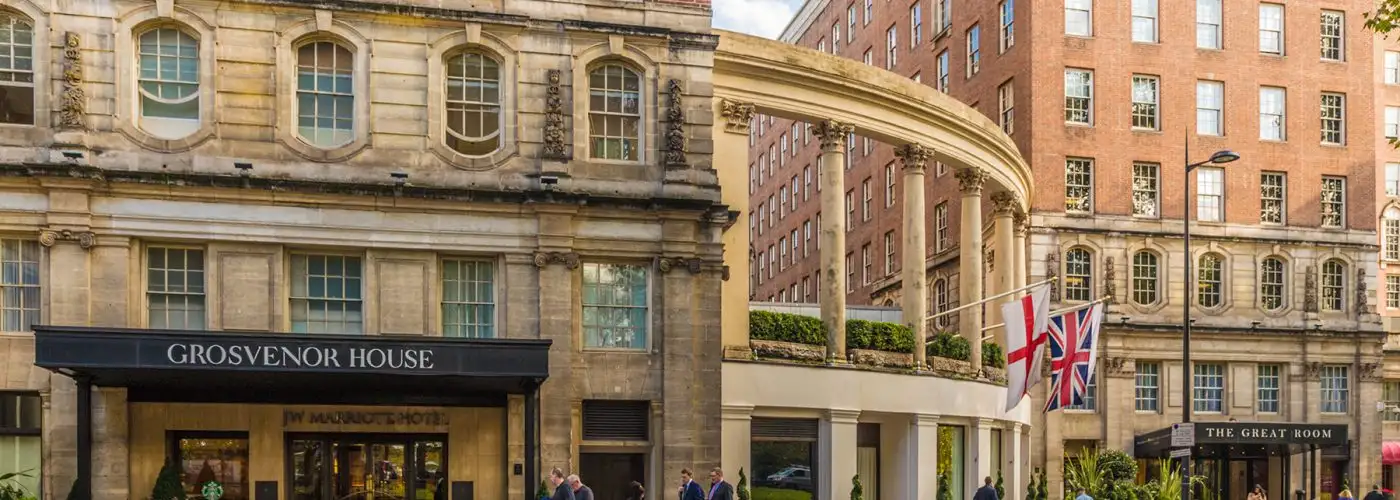In a big win for Britain’s consumers, the British Competition and Markets Authority (CMA) has told big online travel agencies that they must include any mandatory charges like hotel “resort” fees (which are often applied by non-resort hotels in big cities, as well) in the up-front listed price. It’s ok, says CMA, for hotels to break the full price into a base charge plus a mandatory fee, but all mandatory fees must be included in the initially displayed cost.
The CMA order applies to other deceptions similar to resort fees, as well, requiring online booking sites to:
Make it clear how hotels are ranked after a customer has entered their search requirements, for example telling people when search results have been affected by the amount of commission a hotel pays the site.
Not give a false impression of the availability or popularity of a hotel, nor rush customers into making a booking decision based on incomplete information. For example, when highlighting that other customers are looking at the same hotel as you, making it clear they may be searching for different dates. The CMA also saw examples of some sites strategically placing sold out hotels within search results to put pressure on people to book more quickly.
Be clear about discounts and promote only deals that are immediately available. Examples of misleading discount claims include comparisons with a higher price that was not relevant to the customer’s search criteria. For example, some sites were comparing a higher weekend room rate with a weekday rate or comparing the price of a luxury suite with a standard room.
So far Agoda, Booking.com, Expedia, and Trivago have agreed to comply, and the CMA says it will keep after the others. CMA is also addressing similar problems with metasearch engines and hotel-chain systems, with a compliance deadline of September 1. Unfortunately, the rules apply only to British versions of booking websites.
And it should stand as an example for regulators in the U.S. about dealing with obvious deceptions. So far, the Federal Trade Commission has abdicated its responsibility to ban deceptive advertising on booking sites, but there’s some hope that individual states may take action under state laws banning deceptive pricing.
Maybe it’s also time for the big OTAs and metasearch folks to step up to their responsibilities to consumers and adopt the British guidelines unilaterally for their U.S. and Canadian postings. After all, if they’ve agreed to do it in Britain it’s clearly feasible. How about it, Expedia and Booking, and the rest? How about honest price postings?
More from SmarterTravel:
- 7 Deceptive Hidden Hotel Fees to Avoid
- The 12 Best All-Inclusive Resorts in the USA
- The World’s Most Famous Hotels
Consumer advocate Ed Perkins has been writing about travel for more than three decades. The founding editor of the Consumer Reports Travel Letter, he continues to inform travelers and fight consumer abuse every day at SmarterTravel.
We hand-pick everything we recommend and select items through testing and reviews. Some products are sent to us free of charge with no incentive to offer a favorable review. We offer our unbiased opinions and do not accept compensation to review products. All items are in stock and prices are accurate at the time of publication. If you buy something through our links, we may earn a commission.
Related
Top Fares From
Today's Top Travel Deals
Brought to you by ShermansTravel
France: 8-Night Paris, Avignon & Nice...
Infinity Worldwide Vacations
 vacation
$2880+
vacation
$2880+
Poconos: 3 Nts in Garden of...
ResortsAndLodges.com
 hotel
$305+
hotel
$305+
7-Nt Canada & New England Cruise,...
Princess Cruises
 cruise
$839+
cruise
$839+




